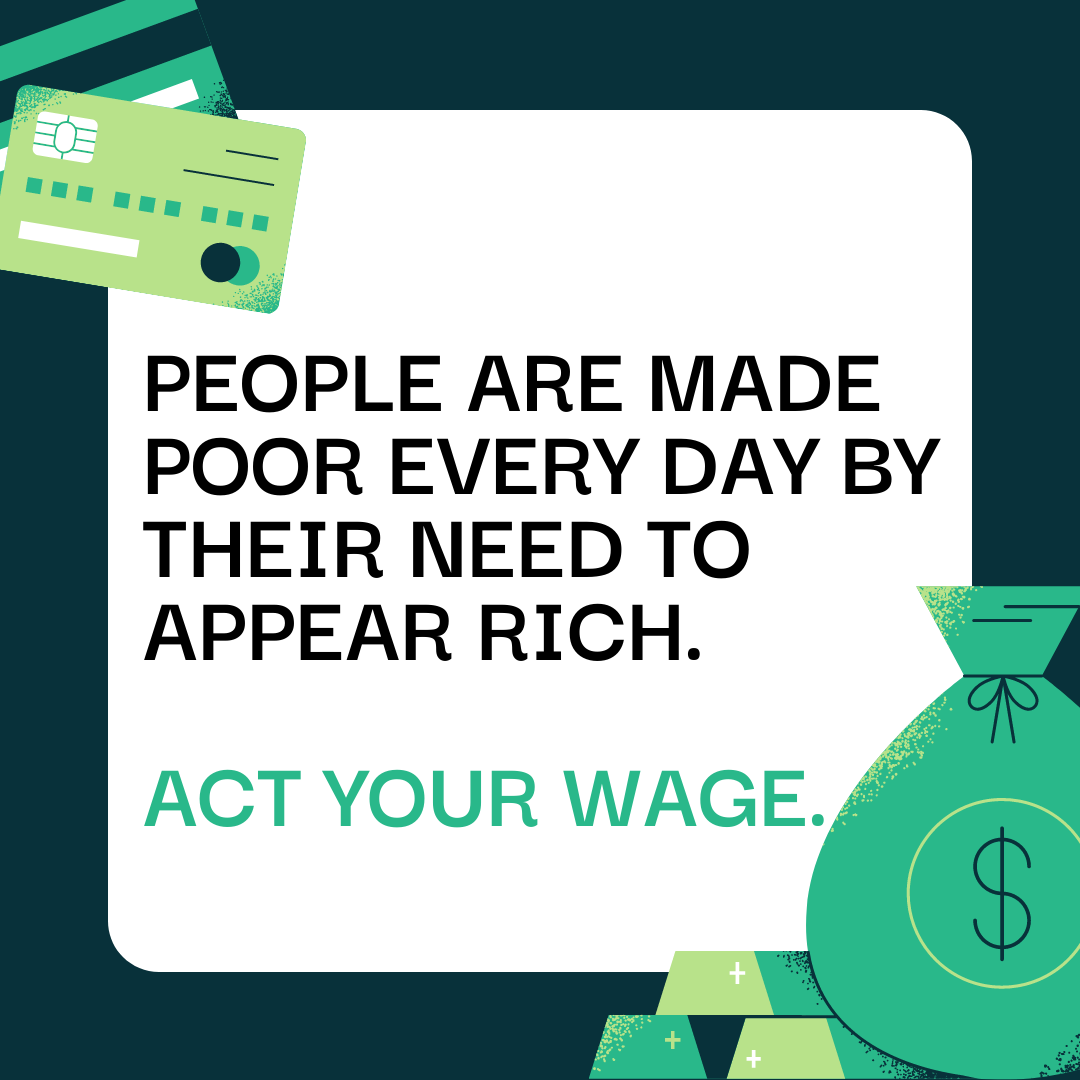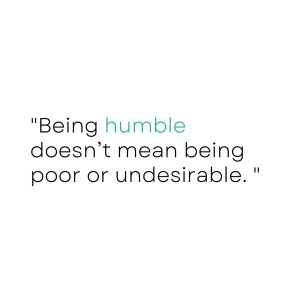
28 Dec Thoughts – People are made poor every day by their need to appear rich. Act your wage.
In western society, the need to project a successful image and high social status can be a very powerful drive. Back in the 40s, while investigating human motivation, American psychologist Abraham Harold Maslow developed a concept known as the hierarchy of needs.
Maslow represented this hierarchy as a pyramid, with survival needs at the bottom and the most artificial ones on top. According to this model, after satisfying primary necessities, such as eating, drinking, having a roof under which to sleep, and access to healthcare, human beings begin to concentrate on more social goals. The first social needs they pursue are love and belonging. Once those are satisfied, they focus on obtaining social status and recognition.
In economically developed countries, most people tend to take basic needs for granted and put most of their energies into satisfying social needs, including the need to appear wealthy and successful.
In our modern consumer society, the obsession with status and looking good, or rich or cool can be so strong that sometimes we end up sacrificing part of our basic needs to spend money on things we don’t actually need, from designer clothes, to expensive cars to fancier houses.
We do this simply to avoid projecting an image we fear our peers may not consider worthy.

Why are we so obsessed with image and status?
A certain dose of narcissism has always been part of human culture. Even when we didn’t have smartphones to take selfies everywhere and social media profiles to share them, the rich and powerful were already hiring painters and sculptors to immortalize their faces and project an image of power, success, or beauty. Yet the great majority of people were too concerned with having enough food and avoiding disease to care about how cool they looked.
Over the centuries, not only did more and more people get out of chronic poverty but the increasing availability of technological devices combined with the ultimate affirmation of capitalism and consumerism generated a culture in which appearing is often considered more important than being.
From an early age, we are exposed to multiple sources telling us that we need wealth, attractiveness, and social recognition to be considered successful members of society.
Living up to this image becomes a priority for us, something we feel we must do at all costs.

But do we really? Is our struggle to appear wealthy actually improving our quality of life?
There are two questions you should ask yourself.
Would we be unable to survive if we stopped putting all this energy into projecting a wealthy and successful image?
Is looking wealthy actually making us happy, improving our social relationships or love life, and boosting our overall well-being?
The answer to the first question is obviously NO. In order to survive, you don’t need a fancier car, more fashionable clothes, a golf club membership, or a Facebook profile full of selfies shot in elite destinations. All these things are nice if you can actually afford them, but it’s not worth it to stress your finances when you can’t.
Answering the second question is a bit trickier. Our environment programs us to think that without displaying a certain image, we would harm our relationships, work opportunities, and, ultimately, happiness. But would we really? Are our friends and loved ones part of our life just because of a fake personality we project, or do they genuinely enjoy our company and care for who we truly are? Do our job and income depend on how cool we look, or did we get them thanks to our experiences, studies, and skills?
As you can see, both our survival and happiness are not tied to how we appear but rather to the extent to which we can express our true selves. As a matter of fact, spending a lot of money and energy on looking like a Hollywood personality may lower our quality of life by increasing our level of stress and reducing the amount of money we spend on basic necessities.

Being humble doesn’t mean being poor or undesirable.
Would you dislike a pleasant and sociable person just because they are wearing a $40 sweater? And would you spend the night out with an arrogant and boring individual just because they are driving a Mercedes?
While flashing their wealth may give certain people an advantage early on in an interaction, what matters in the long term is our ability to cultivate authentic, genuine, enjoyable relationships with others.
“Acting your wage” is not only a great way to put your personal finances back on track, but it helps get rid of societal conditioning and get in touch with our true nature and personality, as well as connect with people who want us in their life for who we really are, rather than a fake successful personality that doesn’t really represent us.

